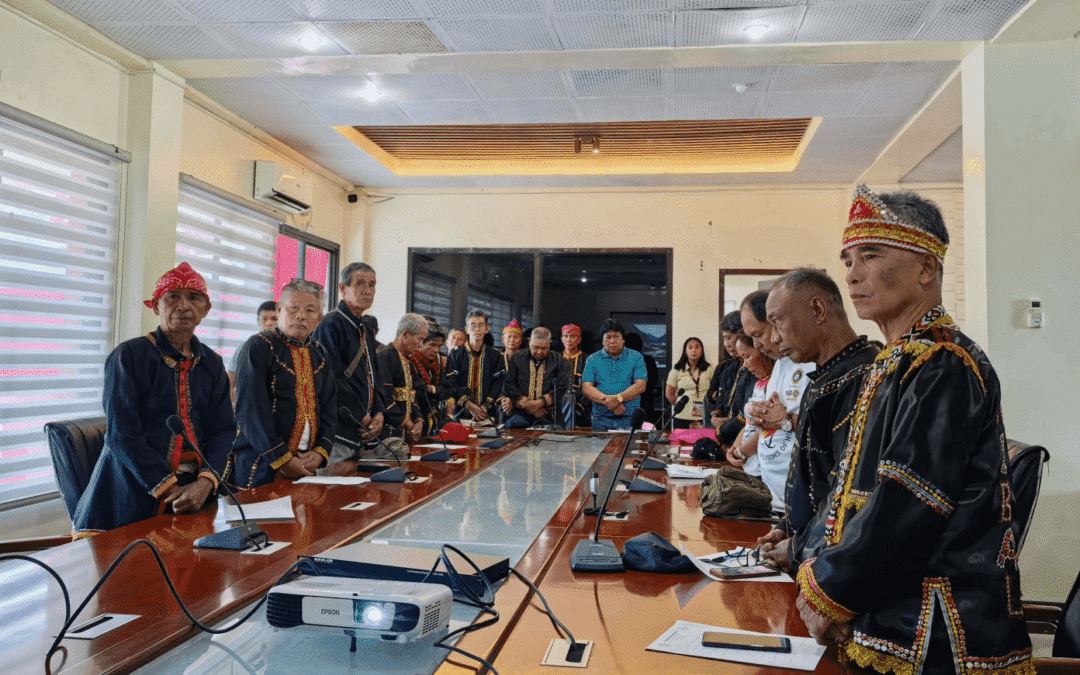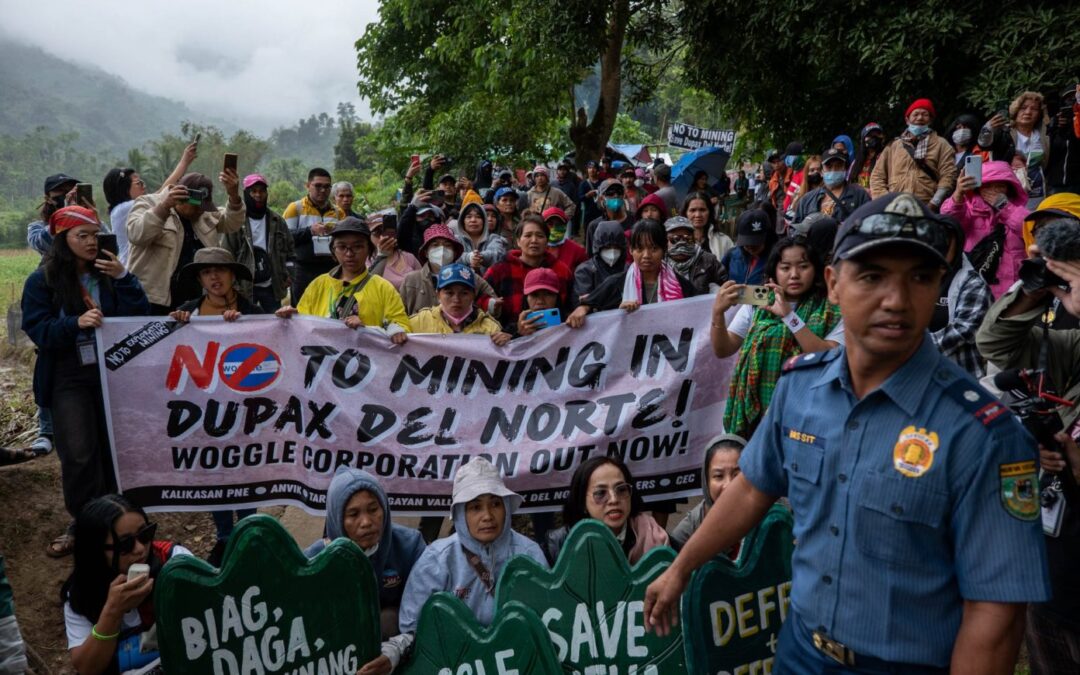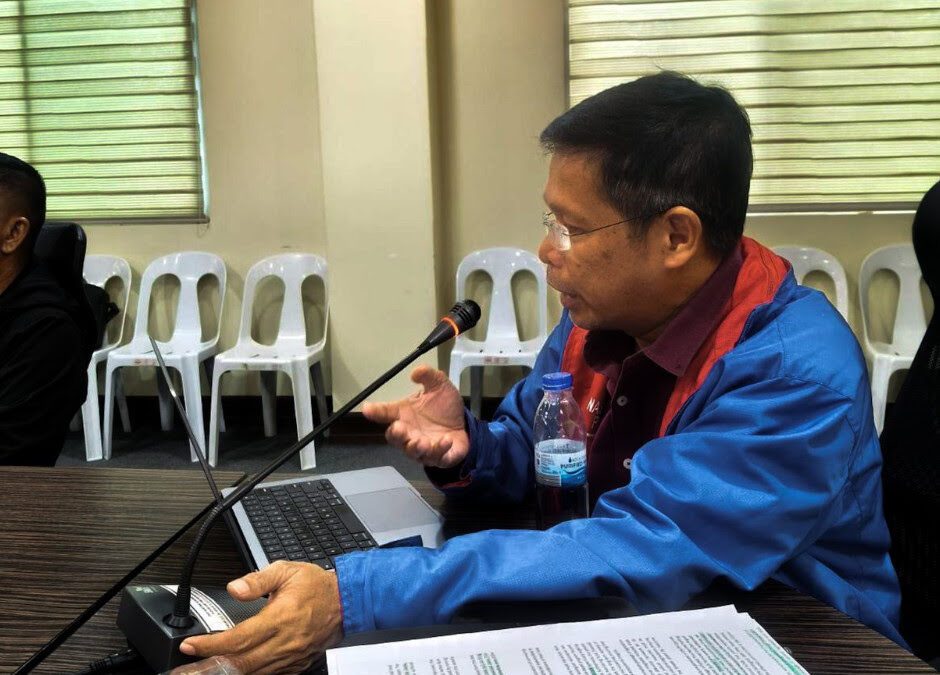By Rev. Dr. Lizette Tapia-Raquel, Union of Theological Seminary
Anthropocene or “the age of humans” refers to a period in Earth’s history when “human impact” was the dominant risk and threat to the survival of the Earth and the human race.
It has been said that “the human imprint on the global environment has now become so large and active that it rivals some of the great forces of nature in its impact on the functioning of the Earth system.”
Ultimately, “anthropo-cene” is ‘anthropo-sin’ (s-i-n) or ‘ecological sin.’ It is about the harm, destruction, plunder, and poisoning of the Creation of God, including ourselves.
It is an attack on life and the web of life. It is a disregard for the sacredness of life. Most of all, it is disobedience and defiance against God and the will of God who is the author of life.
There have been many articulations on ‘ecological sins’ among Protestants for decades.
Today, I would like to focus on greed.
The Poverty, Wealth, and Ecology Program of the World Council of Churches (WCC) in recent years came out with a publication entitled “Economy of Life.”
Part of the material is on ‘the Greed Line.” Just as there is a ‘poverty line’ which is in connection with the minimum level of income deemed as adequate to live life, the WCC advocates the necessity of determining the “greed line,” which should measure and define where the desire for life and to gain is oppressive because it denies others access to life.
The key functions of ‘a greed line’ are first (1), to expose the collective and structural manifestations of greed and its economic, social, and ecological consequences; and second (2), to serve as alarms or ‘red lights,’ signaling to the general public and policymakers that critical limits are being overstepped with potentially disastrous effects.
Konrad Raiser, a German theologian and a former General Secretary of the WCC, (2011, 2014 forthcoming) summarises the biblical injunction against greed as follows:
1. The dynamic of greed is not limited to material possessions; it is an expression of the thirst for power, the temptation to outdo or take advantage of others (1. Thessalonians 4, 4ff) and can thus become a prime example of vice and lawlessness (Romans 1, 29).
2. The condemnation of greed is not only a moral judgment; rather, it constitutes an act of idolatry by focussing trust on material possessions or on one’s power rather than on God (Ephesians 4, 19; 5, 5).
3. Greed is considered as a sign of loss of faith (1 Timothy 6, 10) and a dangerous temptation for those in positions of authority (1 Thessalonians 2, 5; 1 Corinthians 7, 3).
4. Greed is not only idolatry but essentially a denial of Christ who “did not regard equality with God as something to be exploited but emptied himself…” (Philippians 2, 6f; Matthew 25, 31ff).
Therefore, the Christian community is being admonished to “do nothing from selfish ambition or conceit” and to look “not to your own interests, but to the interests of others” (Philippians 2, 3f).”
Kaiser also argues that “the acknowledgment of a ‘greed line’ is, therefore, an act of ‘spiritual discernment,’ i.e. of unmasking the temptations of the false spiritualities of unlimited accumulation and consumerism. The decisive criteria should be derived from an assessment of what sustains or undermines and destroys life in just and sustainable relationships in the human community and with the natural world.”
The WCC and the World Communion of Reformed Churches have been putting forward an understanding of “An Economy of Life” because capitalism and globalization with its systems of multinational and transnational companies, financial speculation, abuse and misuse of limited resources, and the unrelenting pursuit of wealth and profit are economies of death.
Economies of death are ecological sins.
The WCRC, in the ACCRA Confession, gives a statement in the face of economic injustice and ecological destruction after visiting Accra, Ghana, where they visited slave dungeons where millions of Africans were enslaved, commodified, and killed.
It partly reads, “We believe that God is sovereign over all creation. The earth is the Lord’s and the fullness thereof ” (Ps 24.1).
Therefore, we reject the current world economic order imposed by global neoliberal capitalism and any other economic system, including absolute planned economies, which defy God’s covenant by excluding the poor, the vulnerable, and the whole of creation from the fullness of life.
We reject any claim of economic, political, and military empire which subverts God’s sovereignty over life and acts contrary to God’s just rule.
We believe that God has made a covenant with all of creation (Gen 9.8-12). God has brought into being an earth community based on the vision of justice and peace.
The covenant is a gift of grace that is not for sale in the marketplace (Is 55.1).
It is an economy of grace for the household of all creation. Jesus shows that this is an inclusive covenant in which the poor and marginalized are preferential partners and calls us to put justice for the “least of these” (Mt 25.40) at the center of the community of life.
All creation is blessed and included in this covenant (Hos 2.18ff).
The posture of these two ecumenical bodies on ‘ecological sins’ perpetuated through economies of death are of confession, radical hope, and covenanting for justice.
Rev. Dr. Lizette G. Tapia-Raquel is Associate Professor at Union Theological Seminary, Philippines, where she has been teaching Christian and Feminist Theology, and Christian Ethics for over a decade. Her academic and ecumenical affiliations include the Ecumenical Association of Third-World Theologians(EATWOT), the Association of Women in Theology (AWIT) and the Society of Asian Biblical Studies (SABS). Lizette is a feminist liberation theologian and often speaks on social justice, LGBTQI rights, and women and youth empowerment, among others.
Rev. Tapia-Raquel delivered this piece during a public forum titled ‘What is Ecological Sin?’ on September 8 organized by Living Laudato Si Philippines and the Episcopal Commission on Ecumenical Affairs of the Catholic Bishops’ Conference of the Philippines.






0 Comments